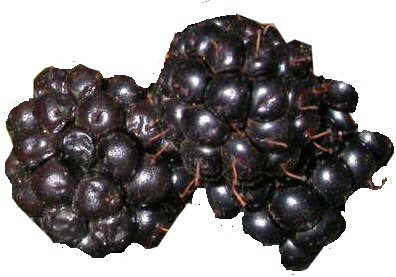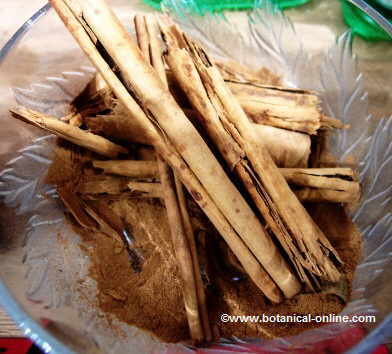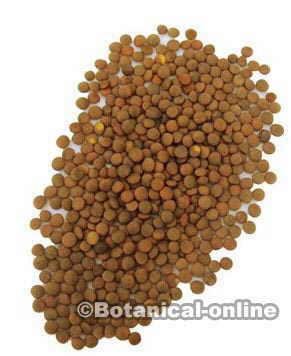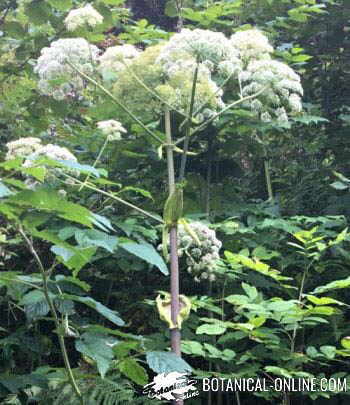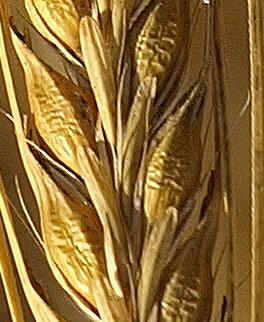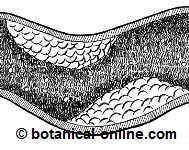Contents
Home remedies for wheezing
Phytotherapy. Herbal remedies for whistles
The primary role of phytotherapy in the problem of wheezing would focus on using plants with the following properties:
– Anti-inflammatory plants to reduce inflammation in the area.
– Plants to eliminate bacterial organisms causing the inflammation.
– Mucilaginous plants to protect the irritated area.
– Plants to reduce spasms accompanying the wheezing patient.
Remedies with medicinal plants to treat wheezing
The most important plants for wheezing are the following:
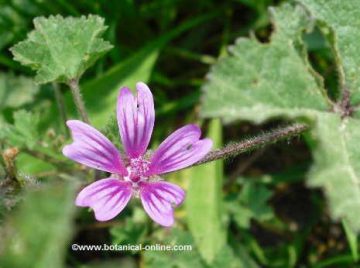
- Mallow: (Malva sylvestris) Rich in mucilage, it is ideal to soften the lining of the respiratory system. It is used in diseases of the respiratory processes such as coughing, especially of dry nature, colds, chest pain, hoarseness, sore throat, wheezing, etc. (Infusion for 5 minutes of a tablespoon of flowers with two leaves of eucalyptus. A couple of cups a day) (For external use make gargling with this preparation)
- Marshmallow: (Althaea officinalis) With properties for both dry cough and to help expel the mucus, improving breathing and encouraging the passage of air into the lungs. (Infusion of a spoonful of dried root per cup of water for 10 minutes. 2 cups a day.)
- Mullein (Verbascum thapsus, V. odoratum) With expectorant properties, is used for most respiratory symptoms, especially in the treatment of bronchitis and asthma. Their use encourages better breathing and whistles of asthmatics. (Infusion for 10 minutes a teaspoon of dried flowers per cup. Strain and drink 3 cups daily)
- Liquorice: (Clycyrrhiza glabra) To calm the cough and soothe the respiratory mucosa, which improves wheezing
- (Infusion of a teaspoon of dried root per cup of water. Take 3 cups a day maximum for 2 or 3 days. Do not extend treatment or exceed the dose.
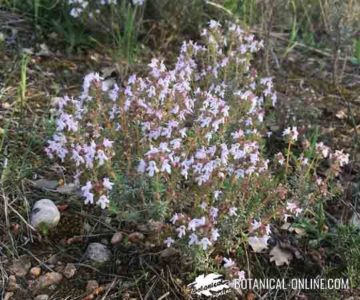
- Thyme: (Thymus vulgaris) it can be used to relieve sore throat. or when you have chest loaded with persistent cough. Antispasmodic properties so it is appropriate to relax tight muscles that tighten the respiratory channels. (Take three cups a day with the infusion of one teaspoon of dried flowers per cup)
- Ground ivy: (Glechoma hederacea) It is another antispasmodic plant, very useful in the treatment of wheezing, coughing, besides it has expectorant properties. (Infusion of a spoonful of dried plant per cup of water. 3 cups a day.
- Garlic: (Allium sativum) Particularly suitable for bacterial cough with expectorant functions. (Maceration for 10 days of half a kilo of minced garlic in a liter of white wine. Take 3 tablespoons a day) (15 drops per day of fluid extract divided into 3 doses. Sold in pharmacies and health food stores)
- Sage (Salvia officinalis) Against respiratory diseases in general, throat, flu etc.) (Decoction of a spoonful of dried leaves per cup. Take two cups a day). (Gargling with the decoction for external use) (Chamomile and sage can be combined to 50% for the same purpose)
![]() More information on aphonia remedies.
More information on aphonia remedies.


